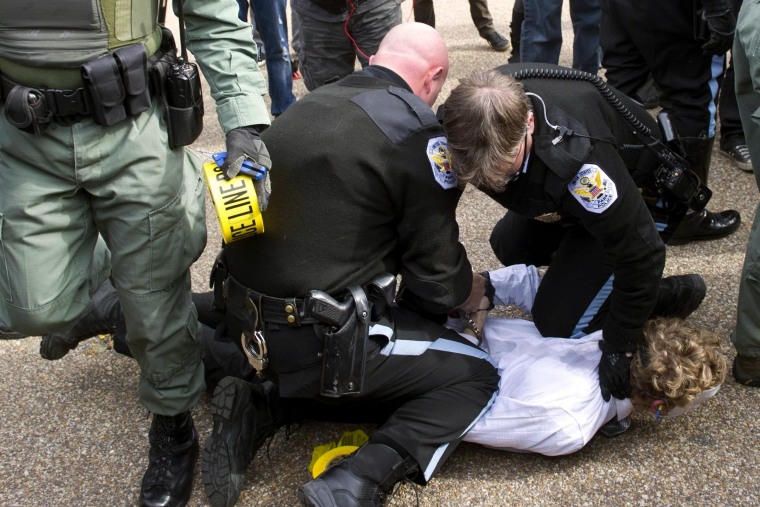Taking on a major new privacy issue, the Supreme Court agreed Friday to consider how much legal authority police must have before rummaging through the cell phones of people they arrest.
Federal courts are split on the issue. Some say police must first get a search warrant, but others say cell phones can be treated like anything else found in the pocket or car of someone taken into custody.
"Computer search and seizure is the new frontier" in applying the Constitution's protection against unreasonable searches, said Prof. Orin Kerr of the George Washington University Law School.
"These are the first cases of many that the Supreme Court will decide in the area, so they'll be very important for the future of the law."

The Supreme Court Friday granted review of two cases in which the lower courts came to opposite conclusions.
In one, a San Diego college student, David Riley, was convicted after police found text messages and pictures on his Samsung smartphone that suggested he took part in gang-related crimes. His conviction was upheld.
But in the other, the courts tossed out much of the case against a Massachusetts man arrested on suspicion of dealing drugs. After taking him into custody, police learned where he lived by looking at a log of calls on his cell phone. At his home, they found more drugs and a gun.
In neither case did the police get a search warrant before examining the phones.
"Cell phones provide ready access to a vast amount of personal data," said Jeffrey Fisher of Stanford Law School, representing David Riley.
That storage capacity, he said, makes them very different from the kind of objects -- such as cigarette packages and footlockers -- that police have been allowed to examine without a search warrant.
Looking at a smartphone could, "at the touch of a button become a search of private and confidential information such as medical records, banking activity, and work-related e-mails," Fisher argues.
The Supreme Court has held for decades that police do not need a warrant to search the possessions of people they arrest -- to protect officer safety, by looking for weapons, and to preserve evidence that could easily be destroyed.
The Obama administration urges the court to rule that no search warrant is required to examine cell phones, partly because someone who's been arrested has a lower expectation of privacy.
The Supreme Court will hear the cases in April.